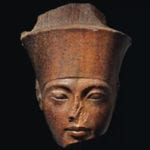 Mysteries
Mysteries  Mysteries
Mysteries  Technology
Technology 10 Times AI Replaced Humans (and No One Noticed)
 Politics
Politics 10 Dreaded Despots Who Met Untimely Deaths
 Pop Culture
Pop Culture 10 Celebs Who Have Surprisingly Wanted to Be on Reality TV
 Creepy
Creepy 10 of the Strangest Popular Creepypastas
 Animals
Animals 10 Animals That Used to Be Bigger
 Our World
Our World 10 American Cities, Towns & Villages That Are Unlike Any Other
 Movies and TV
Movies and TV 10 Huge Movies Almost Made by Other Directors
 Technology
Technology Lost in Transmission: 10 Unsung Heroes of Radio Innovation
 Miscellaneous
Miscellaneous 10 Incredibly Valuable Chinese Antiques Discovered by Accident
 Mysteries
Mysteries Ten Mysterious “Ghost Ship” Stories That Still Keep Us Wondering
 Technology
Technology 10 Times AI Replaced Humans (and No One Noticed)
 Politics
Politics 10 Dreaded Despots Who Met Untimely Deaths
Who's Behind Listverse?

Jamie Frater
Head Editor
Jamie founded Listverse due to an insatiable desire to share fascinating, obscure, and bizarre facts. He has been a guest speaker on numerous national radio and television stations and is a five time published author.
More About Us Pop Culture
Pop Culture 10 Celebs Who Have Surprisingly Wanted to Be on Reality TV
 Creepy
Creepy 10 of the Strangest Popular Creepypastas
 Animals
Animals 10 Animals That Used to Be Bigger
 Our World
Our World 10 American Cities, Towns & Villages That Are Unlike Any Other
 Movies and TV
Movies and TV 10 Huge Movies Almost Made by Other Directors
 Technology
Technology Lost in Transmission: 10 Unsung Heroes of Radio Innovation
 Miscellaneous
Miscellaneous 10 Incredibly Valuable Chinese Antiques Discovered by Accident
10 Strange And Controversial Biblical Prophets
During the Old Testament period, the Bible tells us that God’s instructions to His people were relayed by individuals called prophets. And while the stories of key prophets like Moses and Noah are well-known, some of the other Biblical prophets could be very unusual figures indeed.
10The Strange Prophet
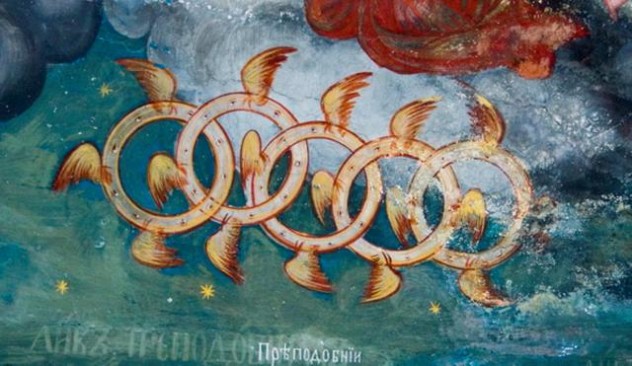
It’s no secret that Ezekiel is perhaps the weirdest book in the Bible. With its strange visions and explicit sexual language, some rabbis instructed that the book shouldn’t be read by any Torah student under the age of 30. Ezekiel himself was among 10,000 Jewish captives taken to Babylon by Nebuchadnezzar. He was from the tribe of Levi, and God called him to be a prophet around 593 BC.
Ezekiel’s trances and visions of wheels with eyes, four-faced creatures with human hands and wings, and strange crystalline architectures in the sky were so intense that it has been seriously suggested he suffered from schizophrenia or some other form of psychosis.
And the style of Ezekiel’s preaching was almost as unusual as its content. After starting his prophetic career by eating a scroll given to him by God, Ezekiel developed a penchant for bizarre and dramatic symbolic acts. These included lying on his side for 430 days to symbolize the number of years the people of Israel and Judah had spent in sin. To warn the people of their impending destruction, he cut off his hair and beard using a sword, burned a third of it, threw a third of it into the wind, and hacked the remaining third to pieces, only saving a few hairs in his garment.
On another occasion, Ezekiel had a vision ordering him to cook his food over human excrement, to symbolize the desperate state the Jews would be reduced to. This proved too much for even Ezekiel, who managed to persuade God to let him use cow dung instead. But perhaps the most shocking passage tells of how Ezekiel refused to mourn his beloved wife’s death. Wise to his act, the people quickly asked what his weird behavior had to do with them. Ezekiel responded that greater suffering was in store than the loss of his wife and advised that the people should bear it bravely, without giving in to grief.
9The Naked Truth

Isaiah is widely regarded as one of the greatest and most influential Biblical prophets. Which makes it even stranger that God once instructed him to strip off and wander through Jerusalem naked and barefoot. To make things even worse, he had to stick to this unusual style of preaching for three whole years. Fortunately, God wasn’t just playing a prophetic prank, but was using Isaiah to make a point.
The Assyrian Empire was looming ominously, prompting the people of Judah to rely on the protection of Egypt and Ethiopia. But Isaiah warned that the Assyrians would reduce those mighty nations to the same state as him: “So shall the king of Assyria lead away the Egyptians prisoners, and the Ethiopians captives, young and old, naked and barefoot, even with their buttocks uncovered, to the shame of Egypt.” Sure enough, the Assyrians triumphed, showing the foolishness of relying on worldly powers rather than God.
Admittedly, that point could possibly have been made without making Isaiah walk around nude for three years. However, some scholars have argued that Isaiah wasn’t actually completely naked, but merely without his “outer robe,” leaving him sporting a “short tunic worn near the body.”
8The Doubting Prophet
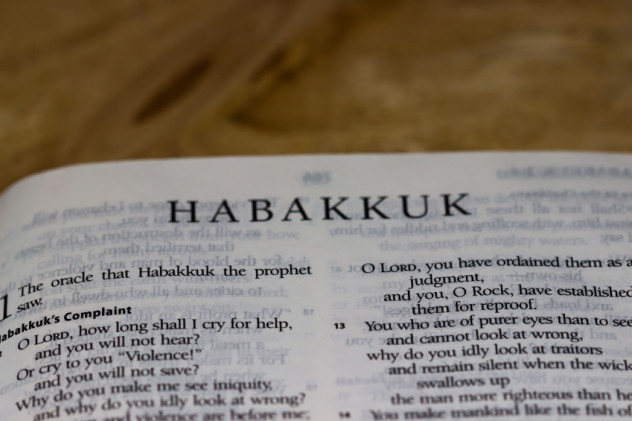
The typical image of a prophet includes an iron faith in the will of the Lord. But the prophet Habakkuk often found himself questioning just what God was thinking. In fact, while most prophets relayed God’s word to the people, Habakkuk was more concerned with relaying the people’s questions to God. The short Book of Habakkuk starts with the prophet reaching the end of his tether and demanding some answers: “How long, Lord, must I call for help, but you do not listen? Or cry out to you, “Violence!” but you do not save? Why do you make me look at injustice? Why do you tolerate wrongdoing?”
God responds to Habakkuk, but completely ignores the questions and just says He’s going to let the Babylonians devastate the region. Inexplicably, that doesn’t satisfy Habakkuk, who essentially repeats his earlier complaints and then announces he’ll be camping on the city walls until he gets some proper answers. Impressed by the prophet’s passion, God speaks again.
He explains that people can make their own choices in life, but that everyone will eventually face a day of judgment for their actions. In a lengthy speech, God calls out everyone from violent empires like Babylon (“Has not the Lord Almighty determined that the people’s labor is only fuel for the fire, that the nations exhaust themselves for nothing? For the earth will be filled with the knowledge of the glory of the Lord as the waters cover the sea.”) to rapists (“Woe to him who gives drink to his neighbors, pouring it from the wineskin till they are drunk, so that he can gaze on their naked bodies! You will be filled with shame instead of glory. Now it is your turn! Drink and let your nakedness be exposed!”).
This answer satisfies Habakkuk, and his book ends with a lengthy passage praising God.
7A Doomed Prophetic Marriage
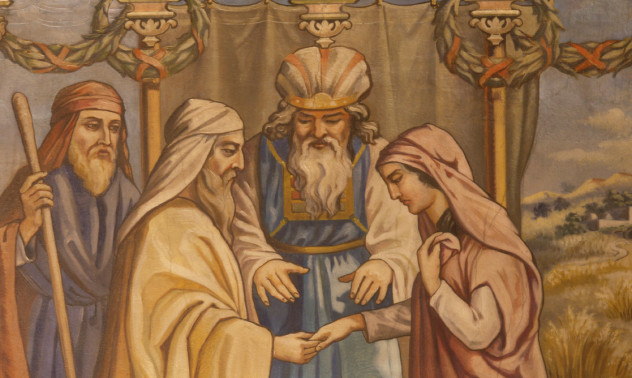
The Book of Hosea isn’t the most popular segment of the Bible, as its content can be a bit hard to chew. Among other things, it kicks off with God ordering Hosea to marry the most promiscuous woman he can find, “for like an adulterous wife this land is guilty of unfaithfulness to the Lord.” Hosea obediently marries a woman named Gomer, who presumably didn’t mind the worst proposal in history.
Gomer eventually has three children (the Bible only specifies that Hosea was the father of the oldest) and it quickly becomes clear that God intends to continue using the family to convey his irritation with the people of Israel. He tells Hosea to name the oldest son Jezreel, for “I will break Israel’s bow in the Valley of Jezreel.” The youngest daughter is dubbed “Lo-Ruhamah (which means ‘not loved’), for I will no longer show love to Israel.” Gomer’s youngest son is slightly luckier than Lo-Ruhamah, with God telling Hosea to “call him Lo-Ammi (‘not my people’), for you are not my people and I am not your God.”
The book then describes how God metaphorically breaks up with Israel, “for she is not my wife and I am not her husband,” and vows to “punish her for the days she burned incense to the Baals.” Meanwhile, Gomer leaves Hosea to live with another man.
But the story ends on a hopeful note, with God urging the prophet to forgive his wife. The couple reconcile and pledge to be faithful to each other. As for God and Israel: “I am now going to allure her. I will lead her into the wilderness and speak tenderly to her. There I will give her back her vineyards, and will make the Valley of Achor a door of hope. There she will respond as in the days of her youth, as in the day she came up out of Egypt.” In other words, God will always be willing to love and forgive his people, no matter their sins.
Interestingly, the story of Hosea and Gomer seems to directly contradict Leviticus 20:10, which calls for adulterers to be stoned to death.
6The Gentile Prophet
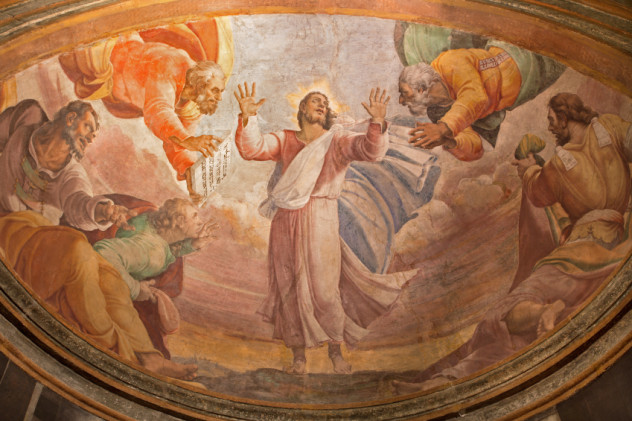
Elijah is one of the most famous Biblical figures. Among other things, he was the first prophet to raise a dead person and was eventually taken up to heaven in “a whirlwind.” The Bible once refers to him as “the Tishbite from Gilead,” which has led some commentators to suggest that he might have been a non-Jewish gentile by birth (tishbe can be translated as “stranger”). This theory doesn’t hold much water, since it’s much more likely that he was from the town of Tishbe and Elijah is a Jewish name anyway.
But that doesn’t mean that there are no gentile prophets in the Bible. The Book of Numbers features an enigmatic figure named Balaam, a non-Israelite prophet who actually ends up working against Moses and the Jews. Balaam enters the narrative in Numbers 22, when the Israelites arrive in Moab on their long journey to the promised land. Naturally, this alarms King Balak of Moab, who sends messengers asking Balaam to curse the invaders “for I know that whoever you bless is blessed, and whoever you curse is cursed.”
God tells Balaam to refuse the request, since the Jews are His chosen people and He’s not going to put a curse on them. But Balak keeps offering more money and God eventually agrees to let Balaam go see the king in person. Balaam and the king offer three sacrifices to God, but each time God responds through Balaam with a blessing for the Jews instead of a curse. Naturally, the king is furious, but Balaam tells him he can only speak the words God gives him.
The king must have been really unhappy with that answer, because Balaam apparently did give some advice of his own. A later passage mentions that he told the king to tempt the Israelites into sinning, thereby causing God to be angry with them and removing their special protection. Ironically, this sinful advice probably had the same effect on Balaam, and Numbers 31:8 briefly mentions that he was killed during a battle between the Israelites and the Midianites.
5The Prophetic Ghost
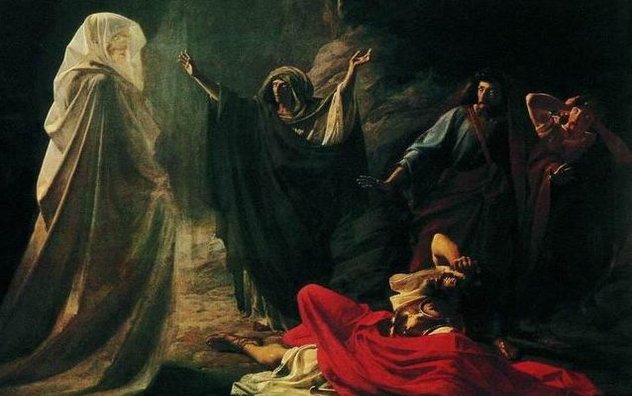
The story of King Saul and the Witch of Endor is one Biblical passage that raises more questions than it answers, prompting all sorts of theological and moral dilemmas.
After the death and burial of the prophet Samuel in Ramah, the Philistines gathered their entire army ready to attack Israel. Terrified, Saul sought advice from God, but received no answer. So Saul decided to force the matter and ordered his servants to find him a witch.
This was difficult, since Saul had previously launched a campaign to wipe out all witches and magicians in the land of Israel. But a spirit-medium of some sort was eventually discovered in Endor, and Saul decided to visit her in disguise. At Saul’s bidding, the unnamed woman apparently summoned the ghost of Samuel. The prophet, however, was unimpressed and proceeded to berate Saul for bothering him and for disobeying God by consulting a witch. The prophetic ghost then predicted Saul’s death in battle the next day. And sure enough, Saul and his family were all promptly killed by the Philistines.
Of course, the Bible strictly forbids witchcraft, so it’s no surprise that Saul was punished. What is puzzling is that the woman of Endor apparently succeeds in communicating with Samuel. This suggests that magic might actually be real in Christianity, to the point that a witch can have power over the spirit of a prophet, even though this doesn’t gel at all with the rest of the Bible. According to the Bible, all power stems from God and God reviles witches. So why would He allow them the power to raise the dead?
On the other hand, scholars have long noted that the witch reacts with surprise and alarm when Samuel actually shows up. This might suggest that she was a con artist who didn’t really expect the seance to work. Instead, God decided to send Samuel’s spirit down to call Saul out for his sinfulness and lack of faith. But the Bible doesn’t spell that out, so the exact meaning of the passage remains a matter of debate.
4The Xenophobic Prophet
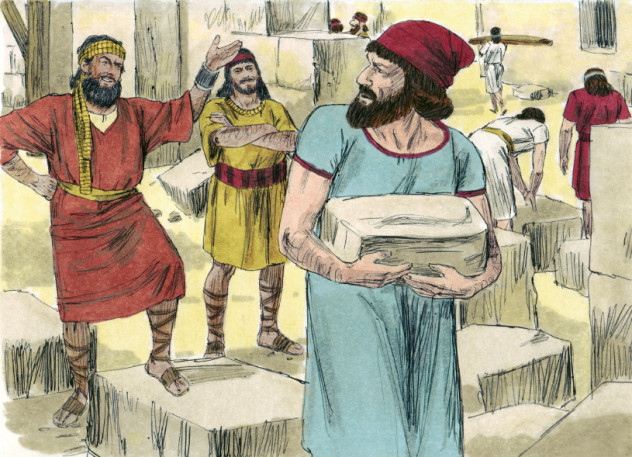
Nehemiah was governor of Jerusalem during the Persian rule in 444 BC. The Book of Nehemiah is a first-person account of his attempts to rebuild Jerusalem both physically and spiritually. One of his key achievements was the completion of the city walls in a mere 52 days.
Soon after the walls were done, Nehemiah left for Persia to report to King Artaxerxes (and probably brag about his awesome wall-building skills). When Nehemiah finally returned to Jerusalem, he was greeted with some bad news. During his absence, some of the Jews had married foreign women from Ashdod, Moab, and Ammon. As a result, their mixed children couldn’t even speak Hebrew.
Incensed by this intermarriage, Nehemiah had a meltdown and began hurling curses at the culprits. When this wasn’t enough, he started pulling out their hair and beating them. Eventually, the men could bear it no longer and agreed to take an oath agreeing that they were “not to give your daughters in marriage to their sons, nor are you to take their daughters in marriage for your sons or for yourselves.” This seemed to calm Nehemiah down and he ended his book with a boast that he “purified the priests and the Levites of everything foreign.”
Ironically, the short-tempered Nehemiah’s name means “comforted by Yahweh.”
3The Resentful Prophets
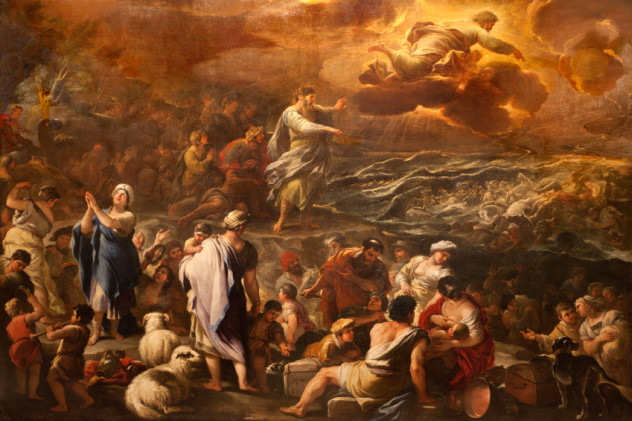
As far as Old Testament resumes go, Moses blows everyone else out of the water. He cheated death when he was merely an infant, grew up in the house of the pharaoh, became a prince of Egypt, then a fugitive, and eventually a shepherd. As if that wasn’t enough, he then reemerged as a prophet and dared to challenge the pharaoh, the most powerful man in the world at the time. Naturally, he won and led his people through the wilderness to the promised land (although he didn’t quite make it there himself).
In fact, Moses is such a dominant figure that it’s easy to forget there were two other prophets helping to lead the Jews through the Exodus—his siblings, Aaron and Miriam. And the two minor prophets weren’t exactly happy to be overshadowed. According to the Book of Numbers, Aaron and Miriam eventually decided to challenge their brother’s authority, asking “has the Lord indeed spoken only through Moses? Has He not spoken through us as well?” They also objected to the fact that Moses was married to a woman from Cush (Ethiopia), which was exactly the sort of interracial union that would have sent Nehemiah into a frenzy.
Unfortunately for the disgruntled prophets, God quickly stepped in to back Moses up. Appearing in a “pillar of cloud,” the Lord pointedly reminded Aaron and Miriam that He had only appeared to them in dreams, whereas Moses was allowed to speak to Him in person. God then departed, inflicting Miriam with a skin disease on the way out. This frightened Aaron, and he begged Moses to intercede on their behalf. After his favorite prayed for mercy, God agreed to forgive his rebellious prophets and heal Miriam.
Oddly, only Miriam was punished by God, making the incident the second time Aaron got away with disregarding his brother’s authority, after infamously building a golden calf for the Jews to worship while Moses was on Mount Sinai.
2The Malevolent Prophet
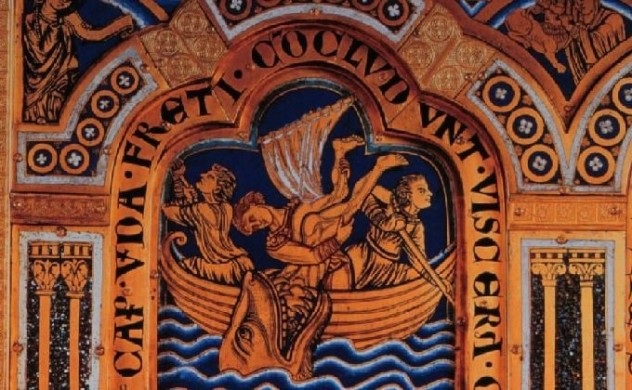
The name “Jonah” means “dove” in Hebrew, but the prophet Jonah is nowhere near as sympathetic as that would suggest. In fact, he might be the strangest prophet in the Bible, since he rarely seems to agree with his instructions from God.
According to the Book of Jonah, the prophet was ordered on a mission to Ninevah, an Assyrian city known for its wickedness. Famously, Jonah disobeyed this divine command and instead tried to get as far away from Assyria as possible. Unamused, God had him swallowed by a “huge fish” until he agreed to get with the program.
Once Jonah finally arrived in Nineveh, his words were so touching that the whole city sincerely repented. This would have been great news for most preachers, but Jonah apparently had other ideas—he wanted Nineveh and all its people obliterated. So when God mercifully decided to spare the city, Jonah flew into a rage and asked God to just kill him.
Still hoping that the destruction of Nineveh might be imminent, the prophet later left the city and picked a nice spot on a nearby hill where he could keep an eye out for fire and brimstone. Thankfully, Yahweh never granted him the show.
1The Nasty Prophetic Underpants

In a passage found in the Book of Jeremiah (13:1-11), God instructs the prophet to act out a lesson for the people via a linen “waistcloth.” The word is ambiguous enough that it could refer to a belt or to a cloth tied around the wast, a common type of underwear at the time. Most scholars favor the second interpretation, since “the intimacy of the garment to the wearer requires it to be an undergarment.”
Sticking with the underwear interpretation, God tells Jeremiah to go out and buy himself a new linen undergarment, but forbids him from letting water touch it. In other words, Jeremiah can’t wash his underwear! After wearing the waistcloth for some time, God tells the prophet take it off and hide it in the cleft of a rock near the Euphrates.
And things don’t end there. After many days, Jeremiah is instructed to return to the Euphrates and retrieve his hidden undies. Once there, the prophet finds the underwear in a disgusting state and judges it “ruined and useless.” God then informs him that the pride of Judah and Jerusalem will be ruined in the same way as his revolting underwear, “for as the girdle cleaveth to the loins of a man, so have I caused to cleave unto me the whole house of Israel.”
